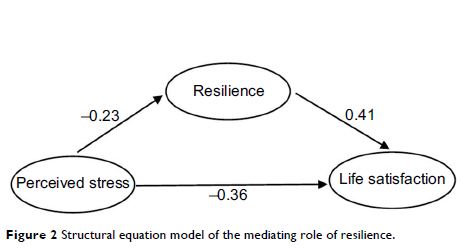108384
论文已发表
注册即可获取德孚的最新动态
IF 收录期刊
- 3.4 Breast Cancer (Dove Med Press)
- 3.2 Clin Epidemiol
- 2.6 Cancer Manag Res
- 2.9 Infect Drug Resist
- 3.7 Clin Interv Aging
- 5.1 Drug Des Dev Ther
- 3.1 Int J Chronic Obstr
- 6.6 Int J Nanomed
- 2.6 Int J Women's Health
- 2.9 Neuropsych Dis Treat
- 2.8 OncoTargets Ther
- 2.0 Patient Prefer Adher
- 2.2 Ther Clin Risk Manag
- 2.5 J Pain Res
- 3.0 Diabet Metab Synd Ob
- 3.2 Psychol Res Behav Ma
- 3.4 Nat Sci Sleep
- 1.8 Pharmgenomics Pers Med
- 2.0 Risk Manag Healthc Policy
- 4.1 J Inflamm Res
- 2.0 Int J Gen Med
- 3.4 J Hepatocell Carcinoma
- 3.0 J Asthma Allergy
- 2.2 Clin Cosmet Investig Dermatol
- 2.4 J Multidiscip Healthc

中国农村已婚妇女生活满意度的相关因素:在大规模样本基础上的横断面研究
Authors Huang H, Liu S, Sharma A, Zou F, Tian F, Wu H
Received 13 July 2018
Accepted for publication 3 October 2018
Published 2 November 2018 Volume 2018:11 Pages 525—533
DOI https://doi.org/10.2147/PRBM.S179052
Checked for plagiarism Yes
Review by Single-blind
Peer reviewers approved by Dr Cristina Weinberg
Peer reviewer comments 3
Editor who approved publication: Professor Igor Elman
Purpose: The living environment in rural China may predispose individuals there
to low life satisfaction (LS). This study aims to evaluate factors that affect
LS among married women in rural China.
Materials and
methods: This cross-sectional study was
conducted in rural Liaoning Province in China, in 2015. Out of 3,900 married women,
3,385 (86.8%) completed a questionnaire survey. LS was assessed using the
Satisfaction with Life Scale (SWLS), with 35 as the maximal possible score.
Stress (quantified by the Perceived Stress Scale [PSS]), resilience (assessed
by the Ego-Resiliency Scale [ERS]), and demographic and living/health
conditions factors were collected through self-reported questionnaires.
Hierarchical multiple regression and structural equation modeling were used to
explore the contributing and mediating factors related to LS.
Results: The overall LS score was 18.94±4.96. A younger age, lower monthly
income, presence of chronic diseases, left-behind status, and sense of marriage
insecurity were negatively associated with LS. Perceived stress was a strong
predictor of LS, as it explained 19.7% of the variance. Higher levels of
resilience were related to higher levels of LS, explaining 15.4% of the
variance. Resilience partially mediated the relationship between stress and LS
for rural residents in China.
Conclusion: Overall, married women living in rural China experienced a relatively
low level of LS. The construction of additional recreational facilities,
provision of convenient access to medical information, facilitation of
communication between couples, reduction of stress, and development of
resilience could all be beneficial intervention strategies to improve LS for
these rural residents.
Keywords: rural women, left-behind, life satisfaction, stress, resilience
